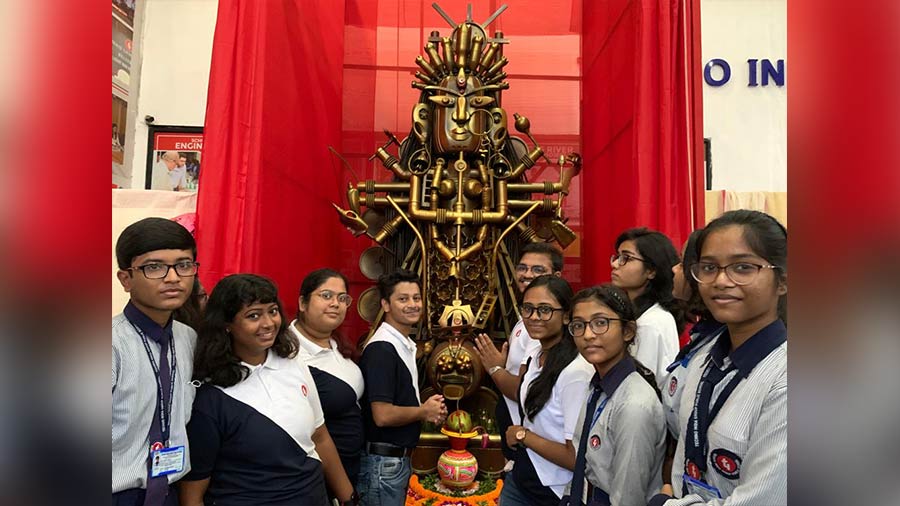Electric vehicles today aren’t just a trend but more of a necessity. With the constant rise in fuel prices, it won’t be too long before there are more electric vehicles on the road than petrol ones. While various companies are trying to come up with solutions to the drying up of natural resources, very few are being able to deliver on their promise of sustainability.
When you think of e-vehicles manufactured in India, your mind may immediately go to places like Bengaluru or Hyderabad but our story is of a company that has its roots firmly set in Kolkata.
Founded by Tushar Choudhary, a Kolkata-based businessman, Motovolt is an electric cycle company with its factory in Taratala. From manufacturing to assembling to shipping their products, the company functions completely out of the City of Joy. The factory floor even includes testing labs through which all the two-wheelers come approved after several quality and safety checks.
My Kolkata spoke to the CEO Tushar Choudhary and checked out the entire factory floor. After reading this, you would definitely want to try one of their cycles yourself.
Flag-off
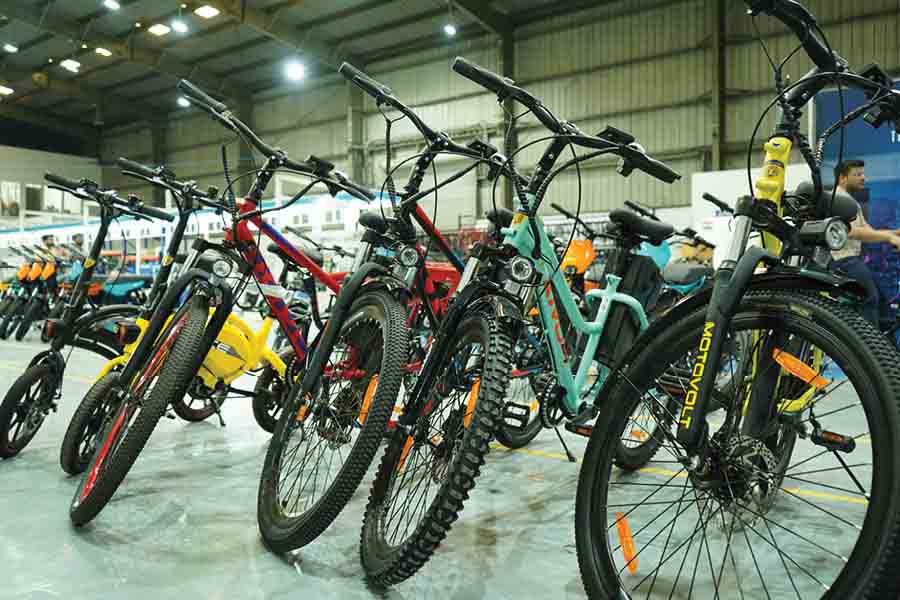
Having rolled out more than 20,000 cycles, Motovolt has a market spread across the country with about 35 per cent of its customers being from Kolkata.
Motovolt started taking shape in 2020 in the midst of the pandemic. Founder and CEO Tushar Choudhary, an alumnus of Harvard Business School, had observed that while electric vehicles were starting to roll out, the major focus was on scooters and motorcycles that were unaffordable for a majority of the country’s population.
“We conducted a survey and realised that innovation in EVs was restricted to scooters, bikes and cars. India sells 15 million scooters and 15 million cycles but e-mobility was only being developed for scooters so we decided to start making cycles to reach the masses and create affordable and sustainable transportation for the common people,” Choudhary said.
Having rolled out more than 20,000 cycles, Motovolt has a market spread across the country with about 35 per cent of its customers being from Kolkata. “Today, you can see a lot of our vehicles being used by delivery boys as it helps them save a lot of money on petrol,” the proud founder said.
Motovolt Mobility received the Best Promising Start-up at the ASSOCHAM Energy Meet Excellence Awards in February 2024.
Two-wheeler tale
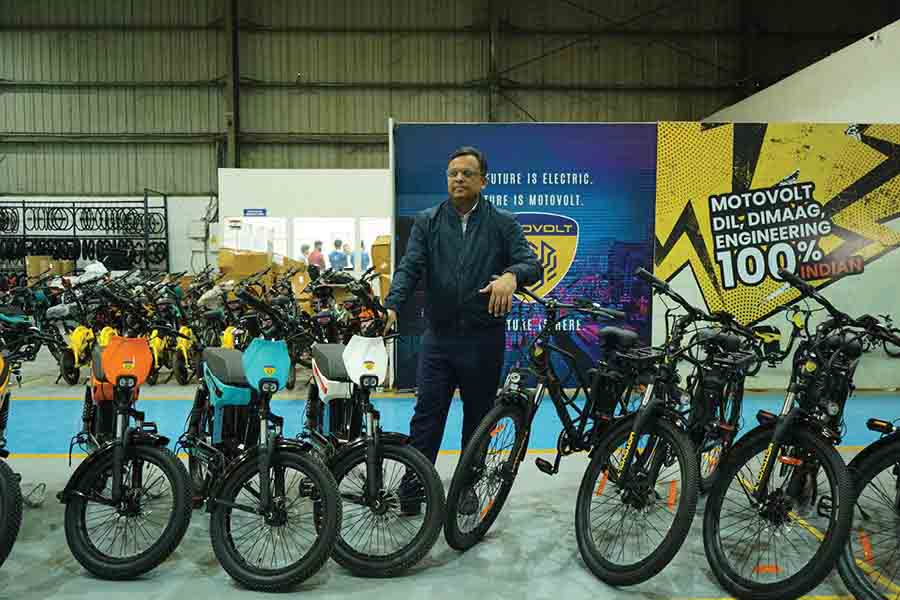
Motovolt cycles run at a maximum of 25kmph, which means that the rider and the vehicle don’t need registration of any sort.
With a removable battery pack made in house, Motovolt hasn’t faced issues like the battery pack catching fire — a common occurrence with e-scooters and even electric cars.
“Most companies import batteries and have to make them compatible with their vehicle. This sometimes leads to overheating or the battery catching fire. We manufacture our own batteries and make sure that they are fireproof. Our app that can be used with any of our products will give warnings in case of overheating or just shut off the electricity altogether to prevent any harm. And because the cyles have paddles, people don’t have to push the vehicle but can ride it as one would a normal cycle,” Choudhary said.
Motovolt cycles run at a maximum of 25kmph, which means that the rider and the vehicle don’t need registration of any sort. Anyone can use the products without a licence. “The advantage is that there is no on-road price because there is no registration. Because it is a cycle and it can only go at 25kmph top speed, it means it is safer for the roads so you can ride around without a licence. We always urge customers to buy helmets for their own safety,” he said.
E-cycles for everyone
With four models in its fleet, Motovolt has a cycle for everyone. The ICE is the smallest one, followed by URBN E and then Kivo and HUM, both of which look like standard cycles but come with battery and motor set-up. The Kivo comes with a lower bar to make it easier for female riders to use.
The only skill one requires to ride these cycles is balance. As long as one can maintain balance, it promises to be a breeze of a ride.
Rider-friendly features
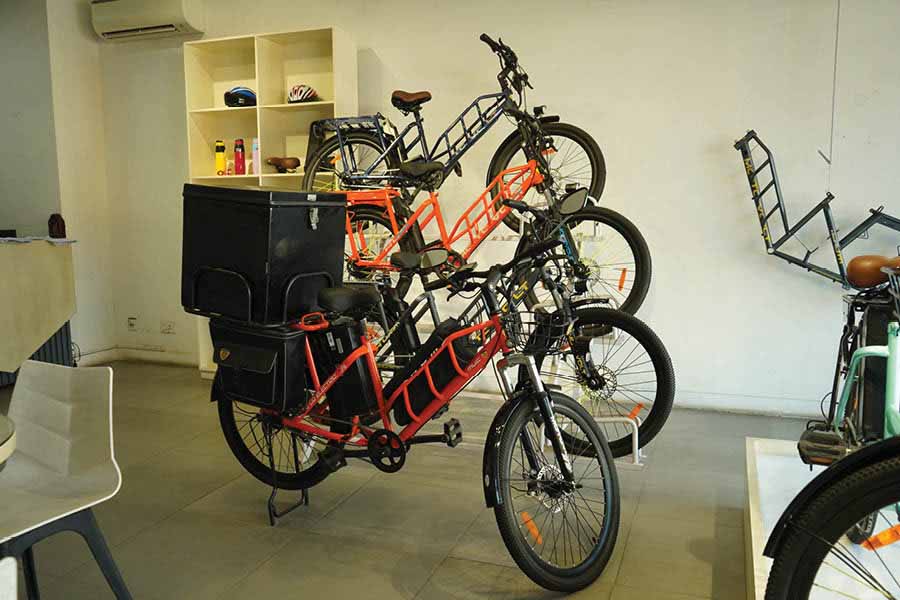
The running costs come to approximately Rs 100 a month if a cyclist rides 100km daily.
Motovolt e-cycles can be customised to suit one’s needs. With features like pedal assist, the rider can decide if s/he wants to run the cycle completely on battery or if pedal and use a percentage of the battery. The cycles also come with GPS tracking in case the rider wants to monitor one’s movements or wants to use the feature as a safety from theft.
The HUM, which is a multi-utility cycle, comes with multiple fitting options. All accessories need to be bought separately. From larger extensions at the back for people to carry additional bags to side mirrors or even a simple thing as a water bottle stand, each accessory can be bought and used to the specific needs of each rider.
“We had this idli seller who would come to our office on a TVS Lunar but he saw our cycle and bought it. He told me petrol prices were so high that he found our cycle very convenient because he could easily carry all his goods at the back and also save so much money on petrol.” Each cycle has a weight capacity of 120kg, so the common man, who uses a two-wheeler for daily errands or transporting goods, will find this to be a very helpful feature.
The price of a Motovolt cycle starts at Rs 28,000 and goes all the way up to 45,000 and while this may seem expensive for a cycle, when you compare it with the average cost of using a petrol-run two-wheeler, there is a huge cost cut. “For any average two-wheeler, the petrol cost is about Rs 3 per kilometre. Our cycles can run 100km on a single charge and the battery gets fully charged in 3 to 4 hours on half a unit of electricity. Say a delivery boy rides 100km every day and puts his battery on charge at night. If you total out charging for every day of a month, it adds up to 15 units. It costs approximately Rs 100 a month for him to charge his battery, which is almost 10 times lesser than it would cost him to pay for petrol,” Choudhary explained.
Motovolt also offers roadside assistance and servicing at a pinch of the cost it would take for a petrol engine. “The target for us has always been the lower income population so everything about our rides has to be affordable to them. Our vehicles don’t need much servicing because the battery and the motor both have a lifespan of 3-5 years. Other than that there are nominal service charges like brakes. We have a warranty period of one year which can be extended to two and any electric damages within that will be covered by us,” said the founder.
Road ahead
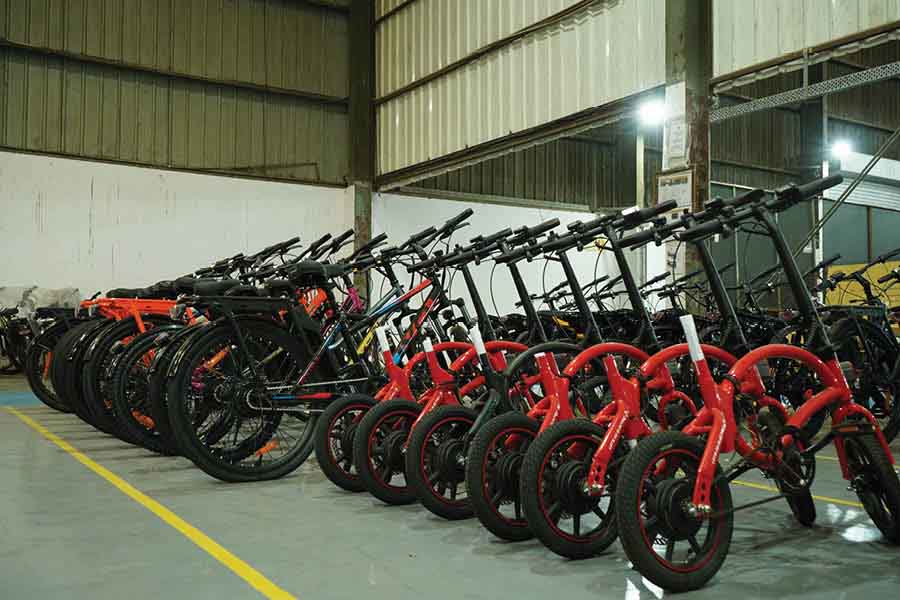
Motovolt also has two other big projects coming up, the first of which is the e-scooter.
Bengaluru has its lifeline in Yulu, which is a battery-operated two-wheeler that can be taken on rent.
My Kolkata asked Choudhary if Motovolt had similar plans. “URBN is an upgrade on the Yulu because it’s the same concept but with a larger battery pack and pedals. We are not planning to giving our cycles out for rent directly but we are looking at tie-ups with companies in Mumbai and Bengaluru. A shipment has already been sent to Mumbai and one will be going to Bengaluru soon,” he said.
Motovolt also has two other big projects coming up, the first of which is the e-scooter. “It will be India’s first truly multi-utility e-scooter that can be customised as per the needs of each rider for delivery boys, it could be making the seat smaller and making additional room for their bags for example. The battery pack will be removable to allow charging at home in office.” The Motovolt M7 was launched on March 5, and it is now available for pre-booking.
The other project is something that will make Kolkata proud of Motovolt. “Soon you will see our cycles on the streets of New York. Our cycles will have Made in Kolkata written on them and that is something we are very proud of.”

